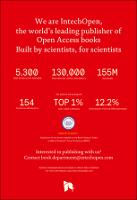Chapter X‐Ray Spectroscopy on Biological Systems
Author(s)
Czapla-Masztafiak, Joanna
Kwiatek, Wojciech M.
Sá, Jacinto
Szlachetko, Jakub
Language
EnglishAbstract
Oxide-based electronics have been well established as an alternative to silicon technology; however, typical processing requires complex, high-vacuum equipment, which is a major drawback, particularly when targeting low-cost applications. The possibility to deposit the materials by low-cost techniques such as inkjet printing has drawn tremendous interest in solution processible materials for electronic applications; however, high processing temperatures still required. To overcome this issue, solution combustion synthesis has been recently pursued. Taking advantage of the exothermic nature of the reaction as a source of energy for localized heating, the precursor solutions can be converted into oxides at lower process temperatures. Theoretically, this can be applied to any metal ions to produce the desired oxide, opening unlimited possibilities to materials’ composition and combinations. Solution combustion synthesis has been applied for the production of semiconductor thin films based on ZnO, In2O3, SnO2 and combinations of these oxides, and also for high κ dielectrics (Al2O3). All of which are required for numerous electronic devices and applications such as fully oxide-based thin-film transistors (TFTs). The properties of produced thin films are highly dependent on the precursor solution characteristics; hence, the influence of several processing parameters; organic fuel, solvent and annealing temperature was studied. Although precursor solution degradation/oxide formation mechanisms are not yet fully understood, particularly for thin films, we demonstrate that high-performance devices are obtained with combustion solution-based metal oxide thin films. The results clearly show that solution combustion synthesis is becoming one of the most promising methods for low-temperature flexible electronics.
Keywords
solution processing, combustion synthesis, environmentally friendly, metal oxide materials, thin-film transistors, semiconductor oxides, dielectric oxidesDOI
10.5772/64953Publisher
InTechOpenPublisher website
https://www.intechopen.com/Publication date and place
2017Classification
Chemical engineering


 Download
Download